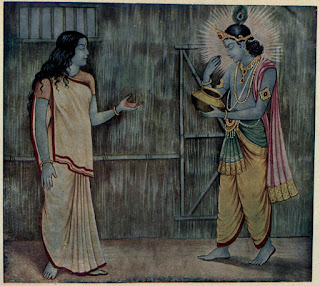Revenge vs Justice: A lesson from Mahabharat
I was watching an episode of Mahabharat and came across an interesting argument by Krishna. Well, it may not be a true representation of the Mahabharata poem itself, and the words spoken might have been different. I couldn't help but wonder if it is applicable in today's world. So reflecting ...
When Draupadi becomes angry at Duryodhana and others after her cheerharan (disrobing), Krishna appears and explains why she should forgive everyone. She is shocked to listen, and so am I. But the justification is amazing. Krishna advises her not to harbor revenge in her heart. Revenge consumes a person and turns the world into a living hell for them. Instead, justice brings peace and helps society as a whole.
Seeking revenge is motivated by selfishness, while pursuing justice is motivated by selflessness.
Is this learning still applicable in today's world? Isn't it better to leave the matter as it is, forget, and move on? How is pursuing justice a better solution for the welfare of society? Who are we to decide if it will result in societal welfare? Even if it does, it requires significant time and effort to pursue justice.
In today's world, there are a few noteworthy examples. Pursuing social justice, Mahatma Gandhi and Nelson Mandela come to mind. These individuals were frustrated by the system's unfairness and the lack of equal treatment for all. They had options available: they could have filed a police complaint solely for their own benefit and moved on, or they could have chosen to flee to a place where equality was already established. However, they opted to recognize the problem on a larger scale and worked towards addressing it for the betterment of society. Their approaches differed significantly - Gandhi advocated non-violence, while Mandela resorted to armed struggle. It appears that different situations demand different actions. Nevertheless, their shared goal remained the same: seeking equality and freedom. Additionally, there have been other individuals who pursued social justice when they had the option to seek revenge solely for themselves and move on with their lives, such as Subhash Chandra Bose, Martin Luther King, and many more.
Writers and lyricists handle challenges in a similar way. They express their personal thoughts on paper, allowing them to reach a larger audience. They may not be pursuing justice in a traditional way, or perhaps they are not pursuing it at all. Nonetheless, their words go out and have an impact on a larger population. During the time of the USA's fight for independence:
Benjamin Franklin was a polymath who made significant contributions as a writer, inventor, scientist, and statesman. His writings, such as "Poor Richard's Almanack" (1732-1758), were widely read and popularized practical wisdom and common sense advice. Franklin's ideas on self-improvement, civic virtue, and the pursuit of knowledge had a lasting impact on American society and helped shape the American identity.
Justice and revenge don't necessarily have to be viewed negatively. Consider them as actions for personal benefit versus actions for the greater good. If you possess the ability and knowledge to pursue good for yourself, you can undoubtedly seek it for others as well. This is what Krishna expressed in the Mahabharata, where the specific context was the eradication of corruption, but the broader lesson is equally applicable in the modern world. Wherever you find yourself, you will always have a choice to make the environment better solely for yourself or to leave it improved for everyone.







Good👌
ReplyDelete